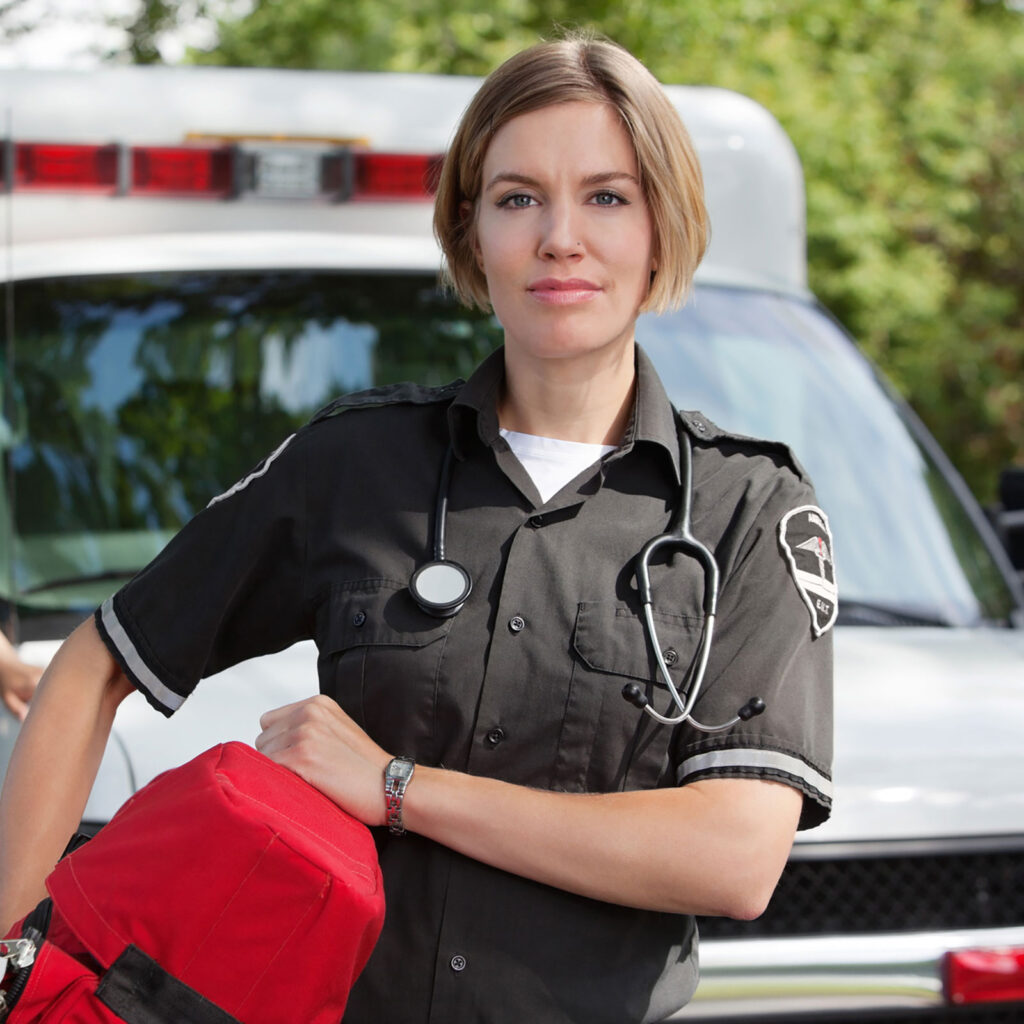Emergency Medical Responders are a vital part of the emergency medical services team. EMRs give immediate care to patients. They are on the scene using their knowledge and skills to provide basic life-saving interventions while awaiting the rest of the emergency response team. EMRs also provide assistance on the scene and en route to the hospital. People in this role are compassionate, calm, and reassuring.
Emergency Medical Responder


Provide
immediate,
life-saving care
Emergency Medical Responder (EMR)
The Job
Provide immediate, life-saving care such as CPR and mouth-to-mouth resuscitation while waiting for the rest of the emergency medical services team to arrive.
Use simple, non-invasive methods designed to provide comfort and minimize chance of additional injury.
You’ll do things like:
- Control bleeding
- Bandage wounds
- Administer CPR
- Remain calm and reassuring
- Communicate with and assist EMTs and paramedics
- Help get patients on stretchers
- Restock and replace supplies
- Clean equipment and prepare for the next response call
EMR training
- 72-hour course
- Pass National Registry of Emergency Medical Technician exam or State Initial Exam
- Written EMR Cognitive Exam
- Topics include airway, respiration, ventilation, cardiology, resuscitation, trauma, medical, obstetrics and gynecology (OBGYN), and EMS operations
- Written EMR Cognitive Exam
- Pass the EMR psychomotor exam administered by the WV Office of Emergency
- Management Services (OEMS)
- Pass background check
- Current CPR card
Who employs EMRs?
- Private and public ambulance services
- Fire departments
- Police departments
Programs in West Virginia
- Blue Ridge Community and Technical College
- Other programs as approved or conducted by WV OEMS.
Affordable training
There is a minimal cost for EMR training and assistance may be available.
